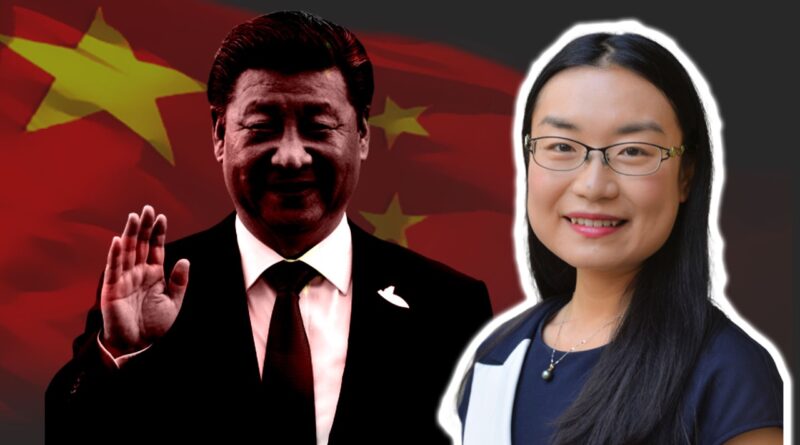Chinese Murmurs: Mumbles Of Dispute Against China
Chinese Murmurs: Mumbles of a dispute against China by Its residents bit Web-based life. Developing voices of difference among the Chinese diaspora are progressively spotting the general tone of political conversations on a wide assortment of online stages.
While the undeniable tone on Chinese state-controlled stages, just as open stages for remote dwelling China nationals, are enemies of India, there is a lot of mumble against the acts of the Chinese government, as well.
Such enemy of government voices have been gotten in a yet-unpublished overview of more than 75,000 posts by Seclabs and Frameworks, a cybersecurity and feeling examination firm.
Conversing with media, Shesh Sarangdhar, the CEO of Seclabs and Frameworks, rushed to underline that such opinions have likewise been spotted among Chinese nationals who work in relationship with think tanks upheld by the administration of China. This would be a huge occurring since the Chinese government ordinarily controls and screens all online action on a tough not
Clarifying the discoveries of his report, Sarangdhar says, “Numerical investigation of informal organizations uncover degree centrality of above 0.576 on normal inside the network, the eigenvalue of around 0.48 inside the network, and betweenness centrality of under 0.03 inside the whole system of open source network that was broke down.”
To disentangle these terms, ‘degree centrality’ shows what number of individuals an individual is associated with over the normal check of a group of friends.
‘Eigenvalue centrality’ characterizes the nature of these associations. Take for instance, on the off chance that one individual is associated with 500 individuals and someone else is associated with 400 – in any case, if these 400 associations have a superior system among them, the Eigenvalue of the last is higher than the individual with more associations. In conclusion, ‘betweenness centrality’ characterizes how reliant, or associated, two social posts are.
Clarifying the significant dissent voices, Sarangdhar states, “The primary gathering of noted people is a lot of Chinese diaspora columnists, who are not content with the outskirt deadlock.
This likewise proposes the presence of the ‘undetectable’ outsider, US of America, in this whole story – a gathering whose sway the Chinese organization must consider.” Aside from them, Sarangdhar further expresses that there are star majority rules system activists and supporters of Hong Kong and Taiwan, who have raised enemy of government voices also.
Conspicuous among these voices are Deng Yuwen and Hu Ping. Deng Yuwen has more than 34,000 supporters on Twitter and is a Chinese columnist, author, and analyst on recent developments.
He is likewise supposedly an individual from the Progressive Council of the Chinese Kuomintang. Hu Ping has more than 221,000 adherents on Twitter.
Deng Yuwen has expounded on how this outskirt question with India thinks about inadequately Chinese administration, and Hu Ping also is cited to be talking taking into account the current Sino-Indian fringe struggle.
A political reporter, Yuwen accepts that if the war among China and India was fundamentally unthinkable previously, it won’t be precluded now. Be that as it may, China won’t step up to the plate and shoot the main shot. He additionally brings the point that up in this contention among India and China, an imperceptible outsider in America.
Aside from them, there are tweets from China as well, which talk about the nation’s inner fight. A Chinese resident, Wang Qianqian, tweeted, “China’s inner battling bits of gossip proceed.
There are even accounts out there, the interior gathering of the Socialist Party of China has been clamoring for “retrospection” and “strike”! (Tweet interpreted from Mandarin utilizing Google Decipher) In the course of recent hours, this tweet has been brought down from Twitter.
Another Twitter account, which passes by the handle @gowKE4HReZ7ZBc5, tweeted that India’s earnest acquisition of 33 contender planes from Russia demonstrates that its relationship with Russia is superior to that of China, striking at the core of Chinese strategy. Every one of these posts mirror that even the vigorously blue penciling Chinese government couldn’t keep a few voices of dispute from rising, and sneaking past their control channel.
WHAT THIS Implies FOR CHINA
From these models, what can be derived from this review is that such posts are neither sorted out and nor arranged. These mumbles of difference are something other than mumbles – they are originating from solid and all around respected sources, and not simply arbitrary clients.
They are likewise disconnected, recommending that most protections are free conclusions, not dependent on one another. Ultimately, the people have supporters that are very much associated, henceforth loaning further validity to these voices.
While many may consider this is just confined feeling, and subsequently not a quantifiable account, Sarangdhar clarifies why it is really not really. He says, “In interpersonal organization hypothesis, a ‘revolt’ is something that happens inconsistently, except if they are fabricated or doctored.
It gets associated just when it is either developing, or there is an on-screen character which is provoking these rebellions.” Given the idea of Chinese state-supported controlling, such an occasion isn’t unexpected.
On this note, Sarangdhar further includes, “It has additionally been seen that expert majority rules system voices of China, ace self-sufficiency voices of Hong Kong and Taiwanese social figures are discovered utilizing this emergency (the India-China fringe deadlock) as a revitalizing point, and encouraging the world to hold China to task.”
The low betweenness centrality (among these various bunches) is especially essential to note, since it regularly determines if dissent is produced (henceforth now and again phony), or legitimate. Such an occasion was noted during irregular fights that rose in Middle Easterner Spring, which later developed into an ‘upheaval’ as the inconsistent voices bound together.
The low centrality here mirrors the inconsistent tension of Chinese nationals, both inside the country’s framework or settled outside, who are endeavoring to shout out – not really for India as such, however certainly against the Chinese government.




